Falling through Multiple Social Safety Nets: Concerns with Food Banks Mimicking Federal Food Assistance Programs
Paper Session at Agriculture, Food & Human Values Society and the Association for the Study of Food and Society’s Annual Conference
Paper Session at Agriculture, Food & Human Values Society and the Association for the Study of Food and Society’s Annual Conference
Presentation at Global Solidarity Alliance Virtual Meeting
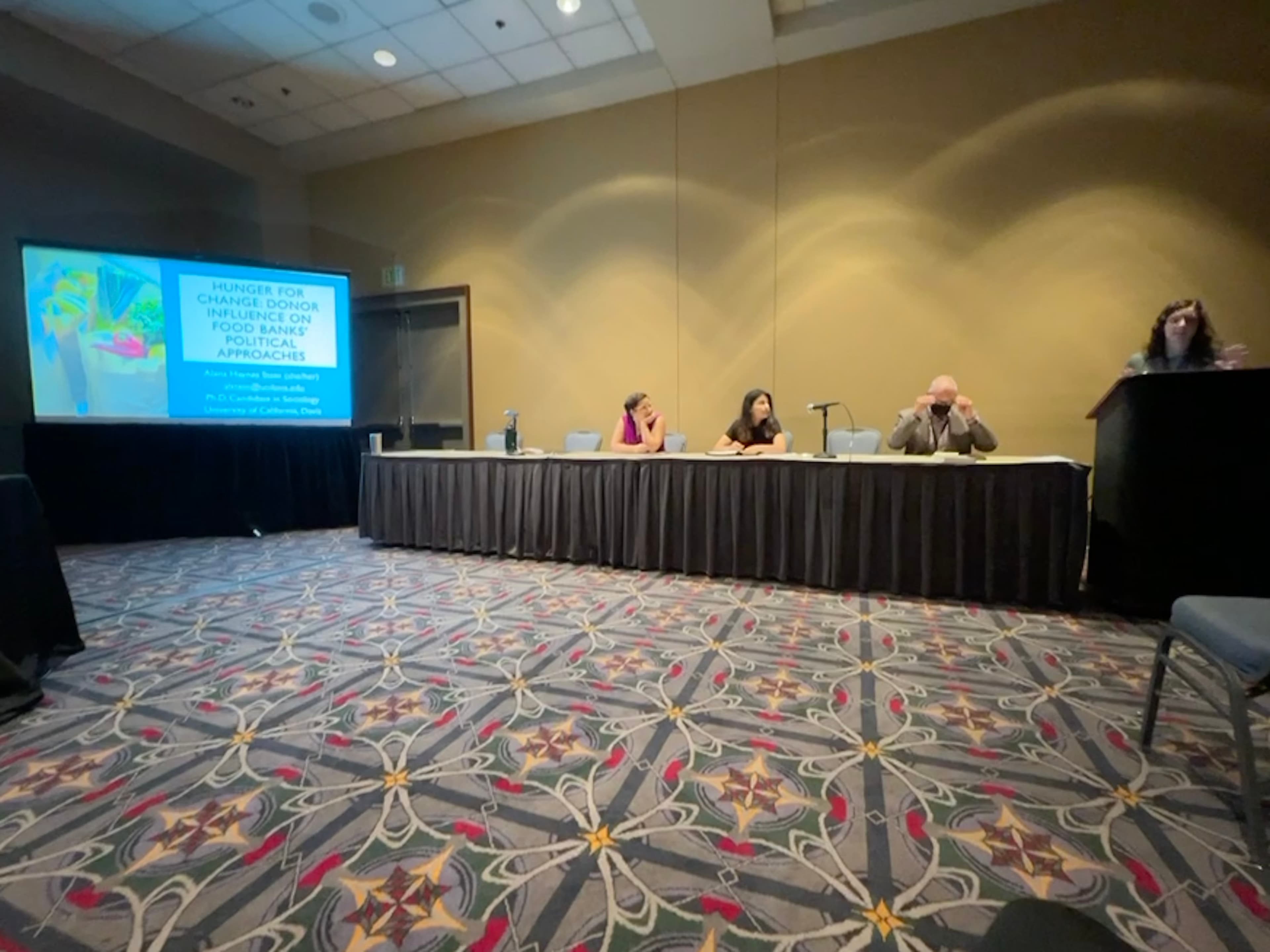
Paper Session on Contemporary Issues in Food Justice & Organization
Invited Panelist for Panel on Organizing for Food Justice: Scaling Up and Reaching Out
Paper Session on Food Sovereignty at The Association for the Study of Food and Society and the Agriculture, Food and Human Values Society’s Annual Conference.
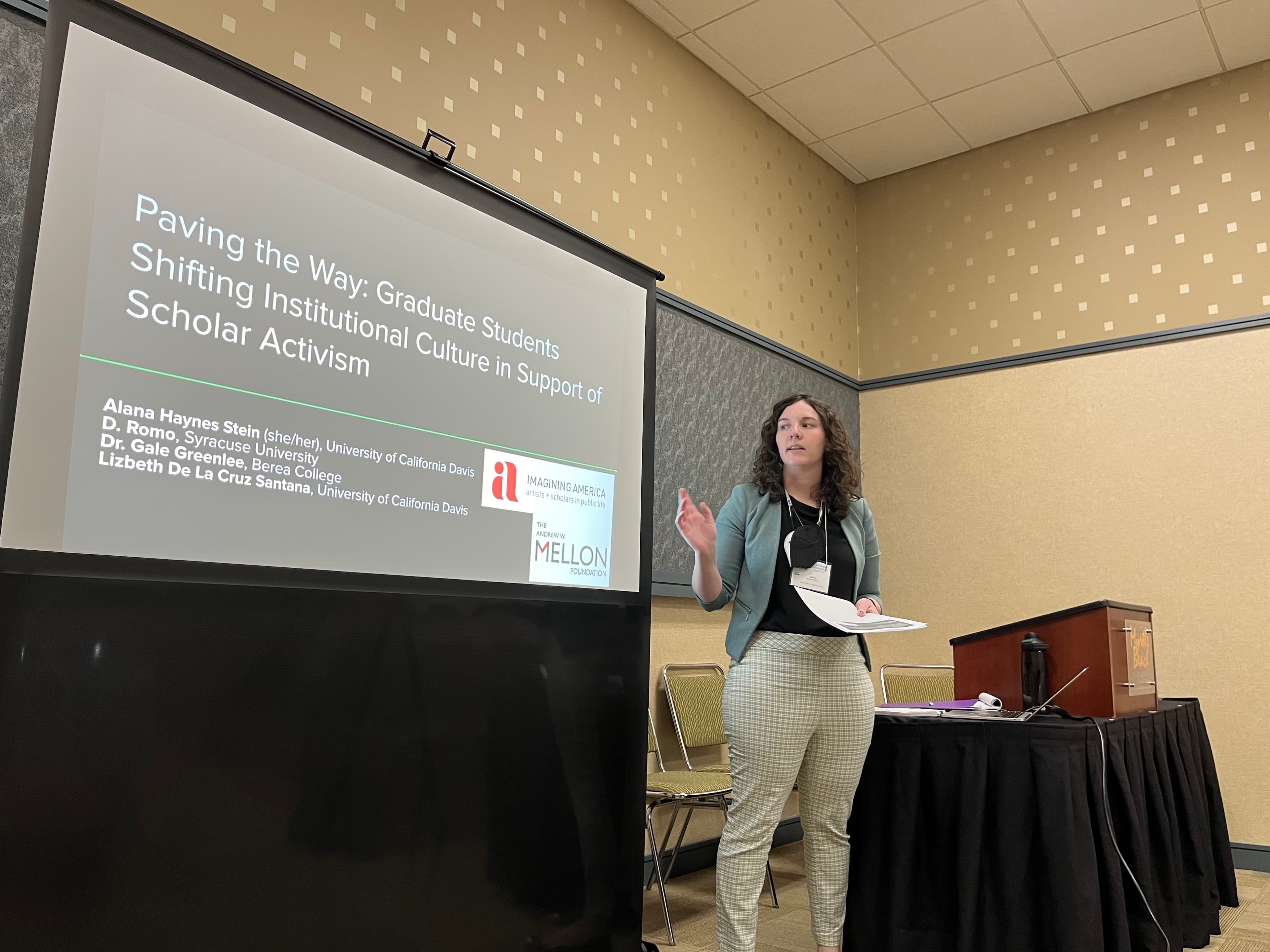
Session Presider and Presenter
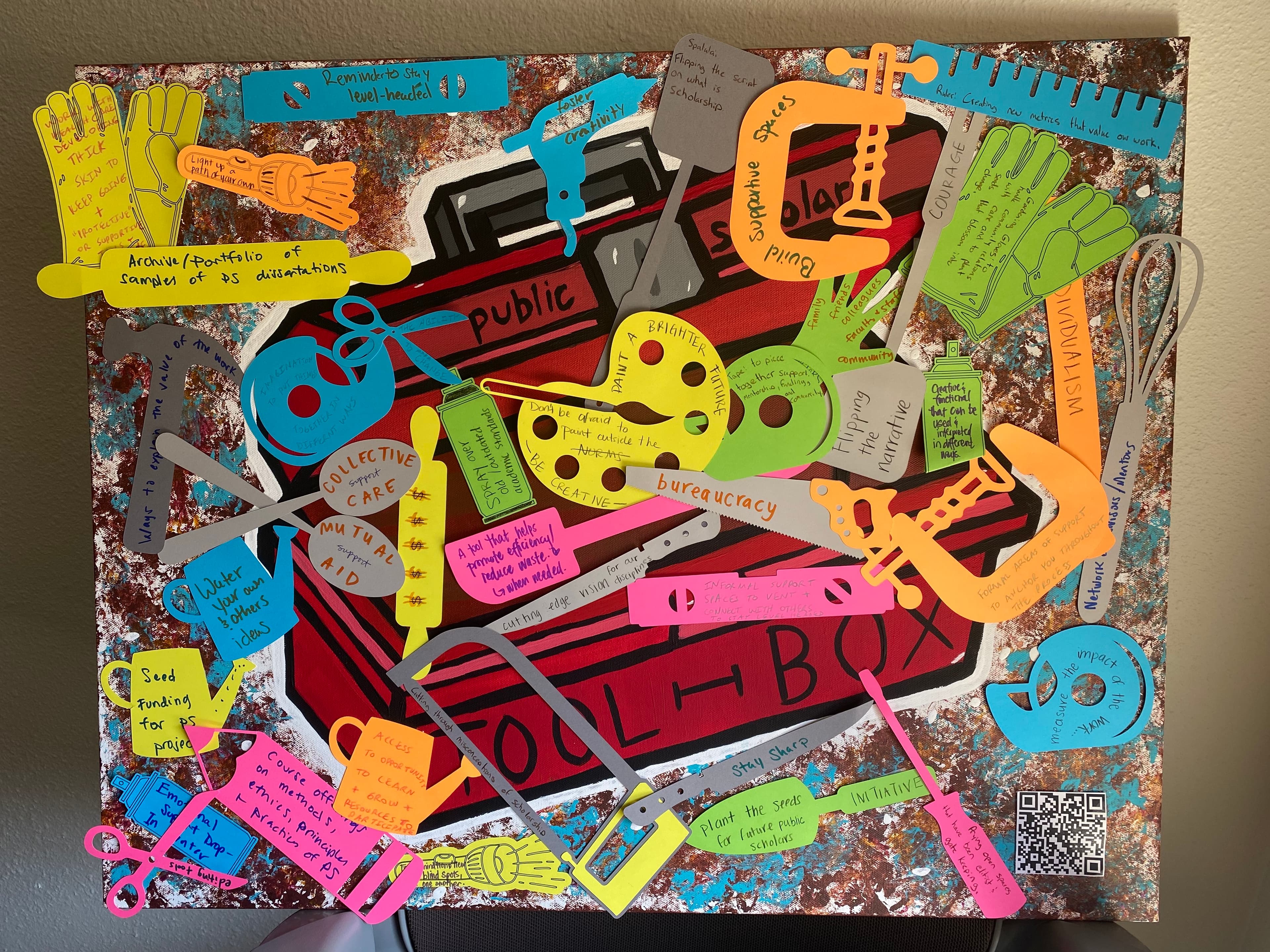
Invited Presentation hosted by Imagining America at University of California, Davis
Invited Presentation for the Leadership Forum at the Imagining America National Gathering
In this interactive workshop, we shared findings from our research conducted as part of Imagining America’s Leading and Learning Initiative with graduate public scholarships at UC Davis and in the Publicly Active Graduate Education Fellowship program. Using this research as a starting point, we coordinated collaborative thinking and brainstorming on how graduate school can be reimagined.
Amid the pandemic, food banks' role in the US social safety net has grown. Yet, their origin as a solution to food waste raises questions. Based on 52 interviews, this study identifies three food bank models for tackling food insecurity.
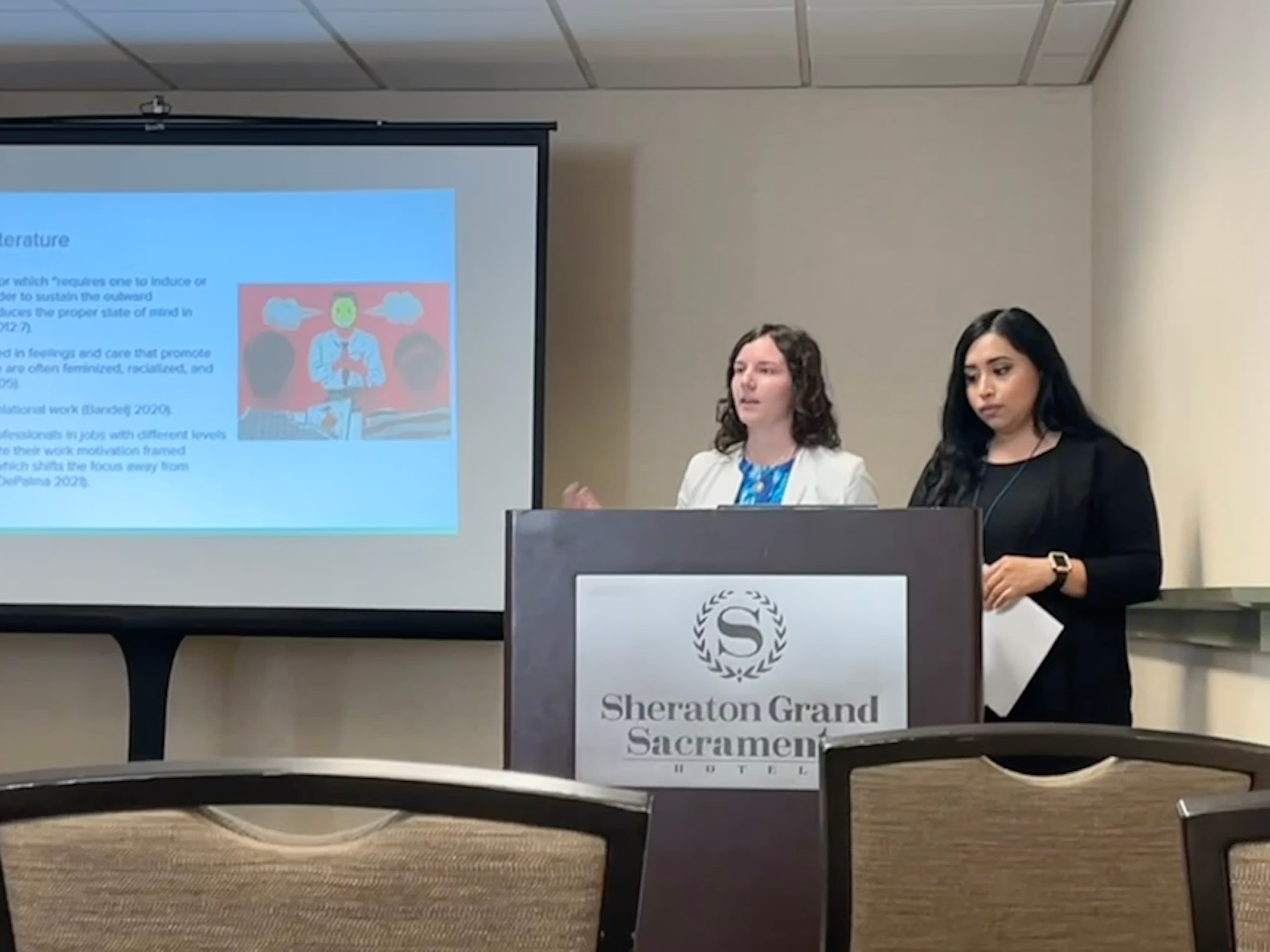
Exploring the emotionality and experiences of graduate students in public scholarship, this study, based on 31 interviews, reveals unique challenges. Scholars navigate power dynamics and emotional labor, often coming from the marginalized communities they study.
Invited presentation to share research findings with the Leading and Learning Initiative advisory board at Imagining America's Organizing Institute.
Applying food justice to the private food assistance network, this project examines access disparities in this alternative food system. Using regression analysis, it finds poverty, race, and urbanicity significantly associated with food bank accessibility in California.
Examining the challenges faced by graduate students in arts, humanities, and social sciences pursuing activist scholarship, this study identifies barriers, facilitation spaces, and strategies based on 31 interviews. The findings provide recommendations to foster a supportive academic culture.
Six UC Davis Mellon Public Scholars discuss the emotional and social aspects of community-engaged graduate scholarship. Topics include advocacy, limitations of assessment, and expanding accessibility. This session showcases transformative spaces and practices for meaningful community engagement.
This panel will host scholars engaging with each other around the experience of public scholarship at the graduate level based on ongoing research of graduate student experiences.
This study explores the relationship between private food assistance and the local food movement, using a California food bank as a case study. Employing geospatial and network analysis along with interviews, it uncovers the significant influence of local, often organic, donors, yet also finds that even within the local food movement, donations are driven by market forces, not truly offering an 'alternative' to capitalism.
Amidst a receding welfare state, the private food assistance network has grown. This study, based on interviews and observation at a Northern California food bank, examines how race, gender, class, and ability affect accessibility, revealing four key structural barriers. The findings highlight the need for equity-focused social service programs to mitigate societal inequalities.
Examining countries' presentations at the 2015 World Expo, this working paper explores how nation-states propose solutions to world hunger. Using ethnography and discourse analysis, it identifies prevalent neoliberal and gastronational tendencies, informing future food security policy making.
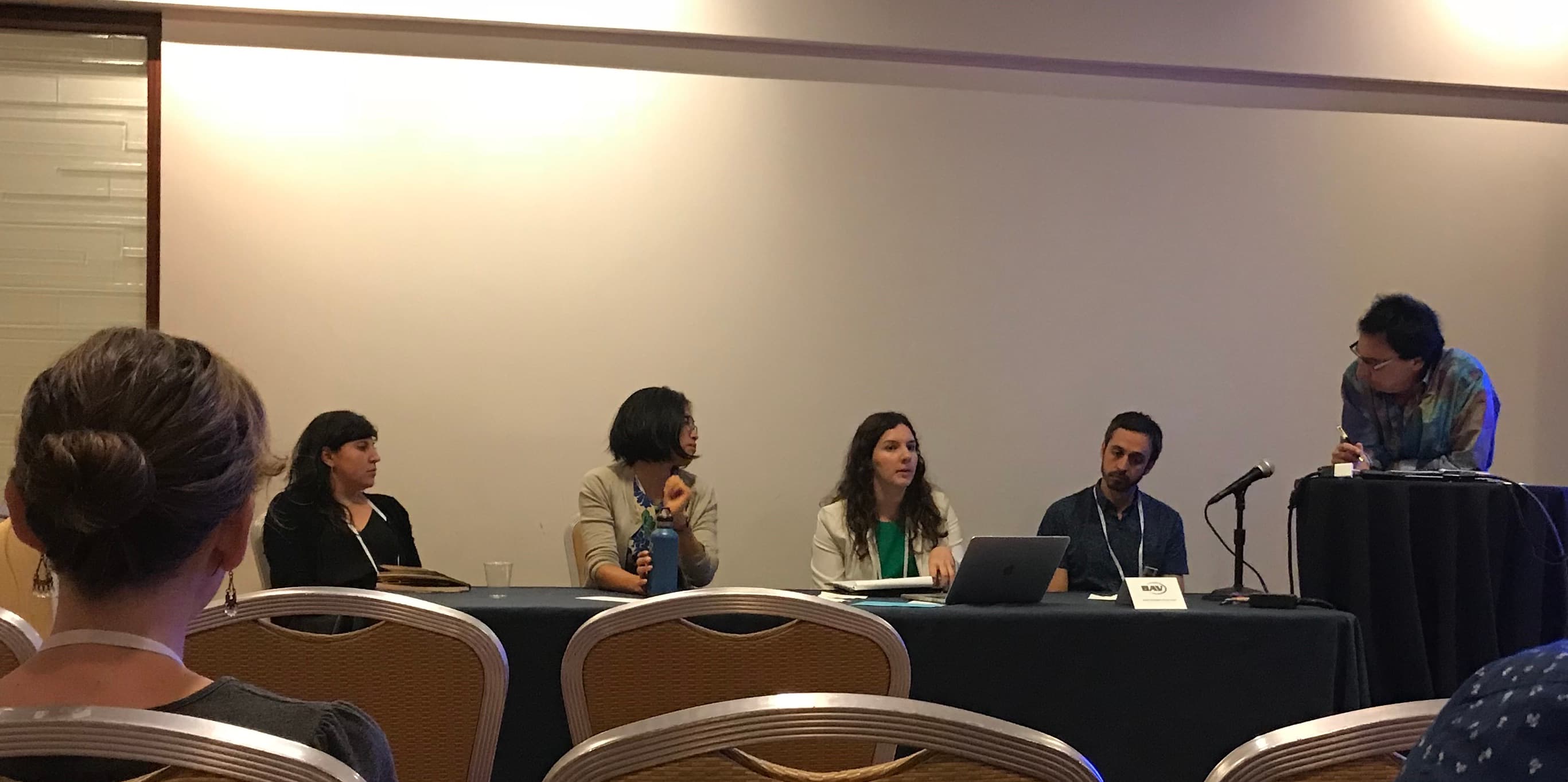
Examining how race, gender, housing, and disability intersect with food insecurity, this study sheds light on the barriers to food assistance for low-income individuals in peri-urban California. Preliminary findings suggest these factors influence perceived safety and treatment at food banks, with potential implications for perpetuating racial and gender inequalities.
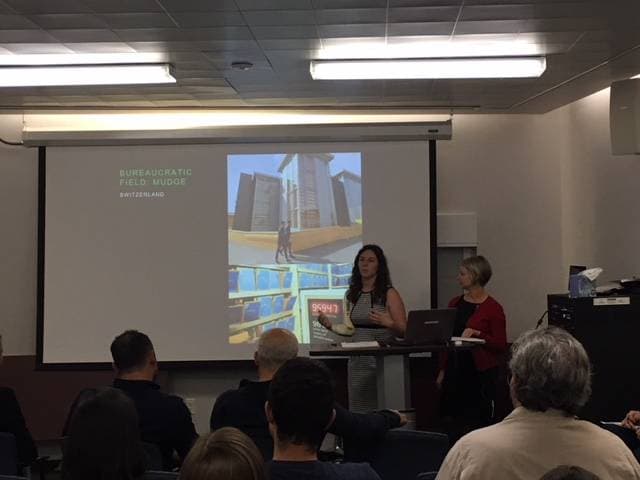
Invited Panelist to talk to sociology and anthropology undergraduate students about how to pursue research as an undergraduate student
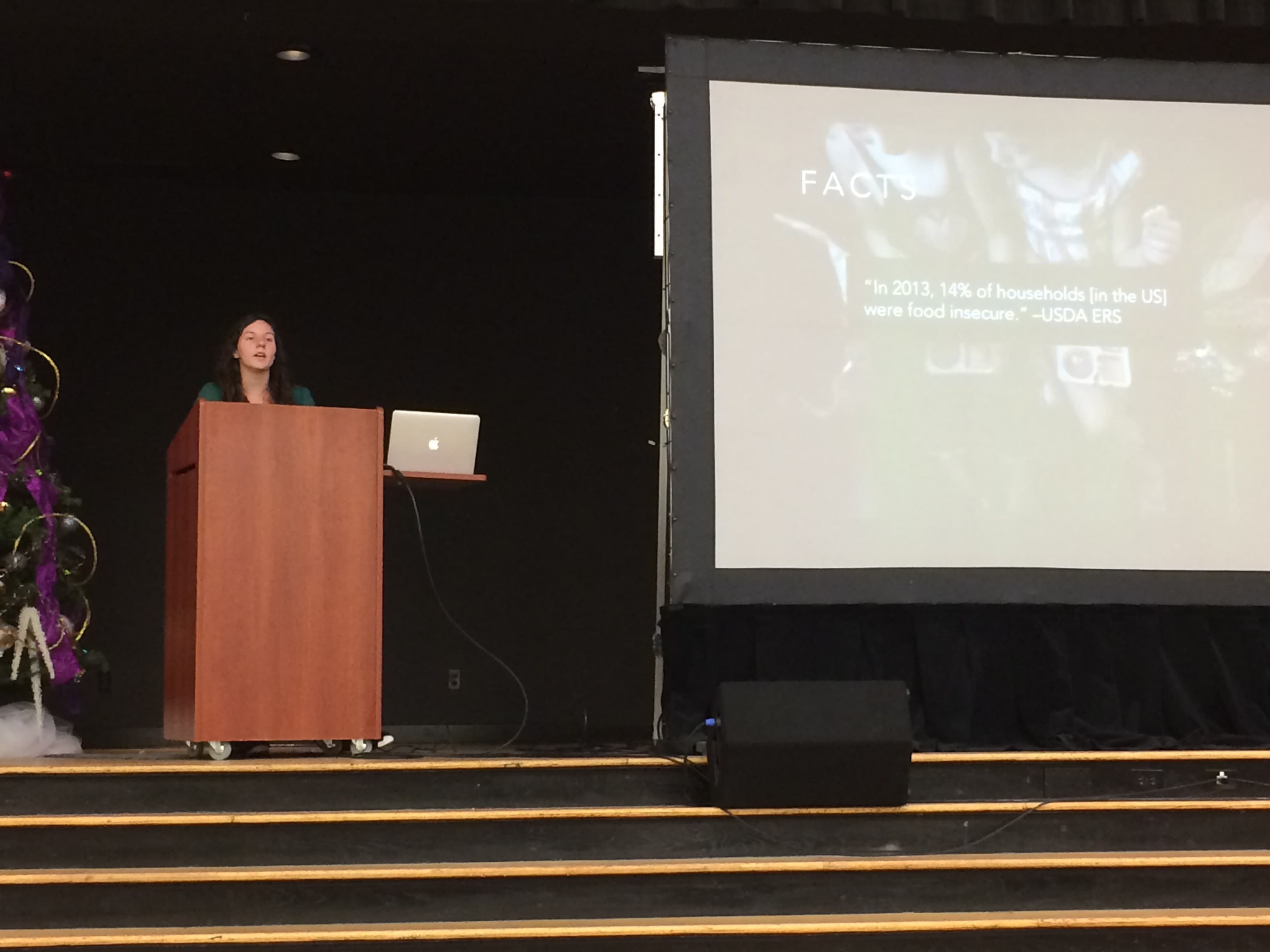
As a Keynote speaker for the university’s End Hunger event, my goal was to educate others on how a food system works and how students could get involved in their local food system.